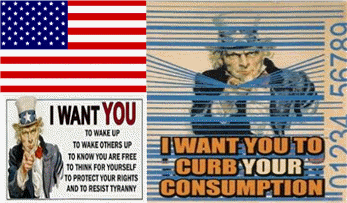i knew there would be a valid reason for his nomination by bush & co.
http://www.latimes.com/news/opinion/com ... t-opinions
Roberts' bad decision
By Stephen Gillers, David Luban and Steven Lubet
JUST FOUR DAYS before the Bush administration named John G. Roberts Jr. to fill retiring Justice Sandra Day O'Connor's seat on the Supreme Court, the District of Columbia federal appeals court decided a case called Hamdan vs. Rumsfeld. In a crucial victory for the administration, the court upheld President Bush's creation of special military tribunals for trials of alleged terrorists and denied them the protection of the Geneva Convention. Roberts was one of the judges who decided that case, but he should have recused himself.
While the case was pending in his court, Roberts was interviewing with high White House officials — including Atty. Gen. Alberto R. Gonzales, Vice President Dick Cheney and Deputy Chief of Staff Karl Rove — for a seat on the Supreme Court. In the words of the federal law on judicial disqualification, this placed the judge in a situation where "his impartiality might reasonably be questioned."
ADVERTISEMENT
It is not too late to correct this error, and with Roberts slated to become the next chief justice, it is especially important that he do so.
In Hamdan vs. Rumsfeld, a three-judge panel upheld the use of military tribunals to try detainees held at the U.S. base in Guantanamo Bay, Cuba. But the decision didn't stop there. Roberts and a second judge also ruled that the Geneva Convention — which guarantees basic human rights — does not protect alleged Al Qaeda members. The third judge disagreed on the question of the Geneva Convention. Thus, Roberts cast a deciding vote on an issue of central importance to the president, just as administration aides were holding out the possibility that the president might choose him for a place on the highest court in the American legal system.
Previous federal cases, as well as advisory opinions of the Judicial Conference of the United States (the official policymaking body for the federal judiciary), have uniformly held that a judge must recuse himself when a lawyer in a case or a party to it is in a position to influence the judge's job prospects. In some instances, the judge was considering leaving the bench to work as a lawyer. In others, the judge was seeking reappointment within the judiciary.
Some legal scholars have defended Roberts' participation in the Hamdan case, arguing that it would be impractical and unnecessary to require Supreme Court hopefuls to recuse themselves in any case in which the federal government is party. That makes sense as a general proposition — after all, administrations usually cast a wide net for potential nominees, and the process may take months. But the Hamdan case was no ordinary appeal.
First, Bush was a defendant in the case, because he had signed orders setting up the military commissions and removing them from the coverage of the Geneva Convention (following the advice of Gonzales, then the White House counsel). The president had also personally determined that there was reason to believe that Hamdan was an Al Qaeda member engaged in terrorism, and thus was outside the Geneva Convention's protection. Secondly, the Hamdan case set a precedent for interrogations and trials of other Guantanamo detainees. By rejecting the Geneva Convention's protections, the case eliminates an important legal safeguard against humiliating or degrading treatment of prisoners.
No doubt during his interviews for the Supreme Court, Roberts avoided all discussion of pending cases. But conflict of interest can be about appearance as much as reality. A reasonable person may wonder whether a judge, even with the best of intentions, could remain impartial in those circumstances.
Let us be clear that we do not question Roberts' integrity, or his qualifications to serve on the Supreme Court. We believe that he decided the Hamdan case as he thought the law required. We do think, however, that he erred by continuing to sit in the case. Even if he considered disqualifying himself but decided against it, he should at least have notified Hamdan's attorneys once the administration showed serious interest in promoting him to the Supreme Court. That would have given them an opportunity to file a formal recusal motion and argue the point.
As chief justice of the United States, Roberts will set the standard for recusal throughout the federal judiciary. It is regrettable that he failed to disqualify himself in the Hamdan case (or notify counsel), but that need not diminish his distinguished record.
Roberts can now demonstrate his leadership by retroactively withdrawing his vote in the case — the procedural rules are arcane, but other judges have recalled or vacated their opinions on the basis of new information or arguments. That would leave the crucial issue — whether the president must honor the Geneva Convention in the treatment of detainees — for decision on another day.
this is why roberts was chosen for chief justice
- crazy casey
- Anti-Neocon novice

- Posts: 36
- Joined: Wed Jun 29, 2005 8:46 pm
- Location: Texas
- Contact:
ah ha! that's it. Good find crazy casey.Roberts was one of the judges who decided that case, but he should have recused himself
Get The Empire Unmasked here
- Left of Larry
- Fights PNAC daily

- Posts: 692
- Joined: Wed Jun 29, 2005 8:17 pm
- Location: Richmond Va
-
Corey Michael
- Fights PNAC daily

- Posts: 680
- Joined: Mon Sep 12, 2005 9:59 pm
- Location: Gulf Coast USA
No impartiality. Conflict of Interest. *&%*&%#(@!!!

"The conscious and intelligent manipulation of the organized habits and
opinions of the masses is an important element in democratic society. Those
who manipulate this unseen mechanism of society constitute an invisible
government which is the true ruling power of our country." Edward Bernays


